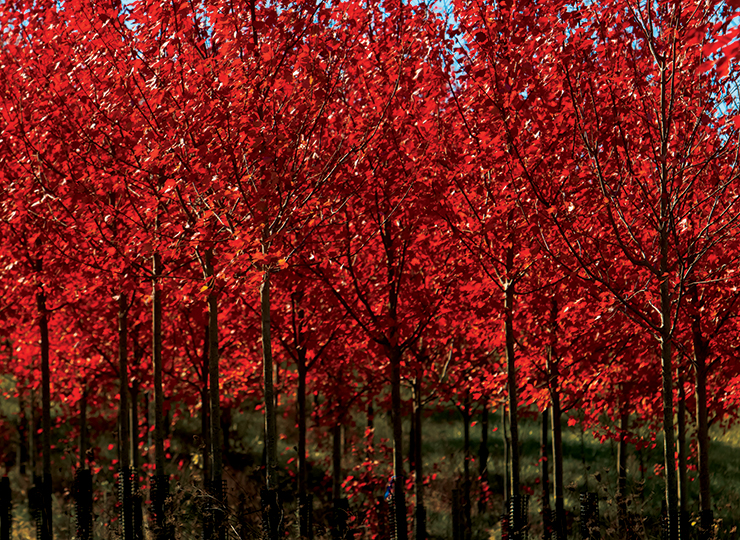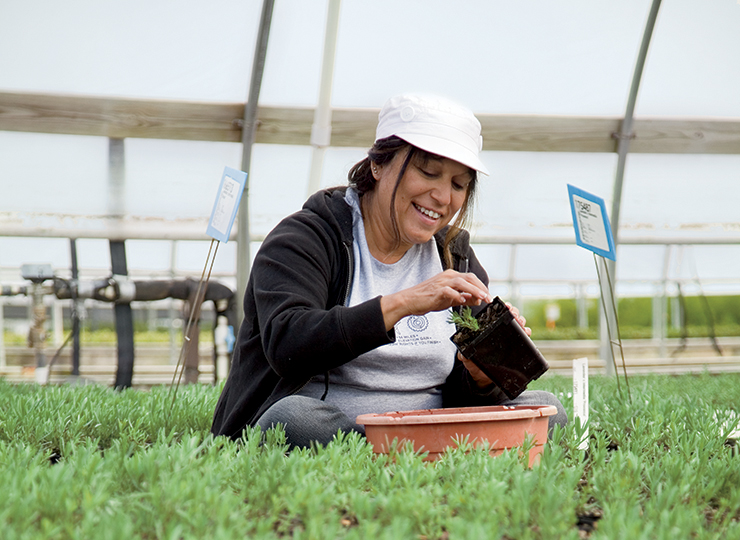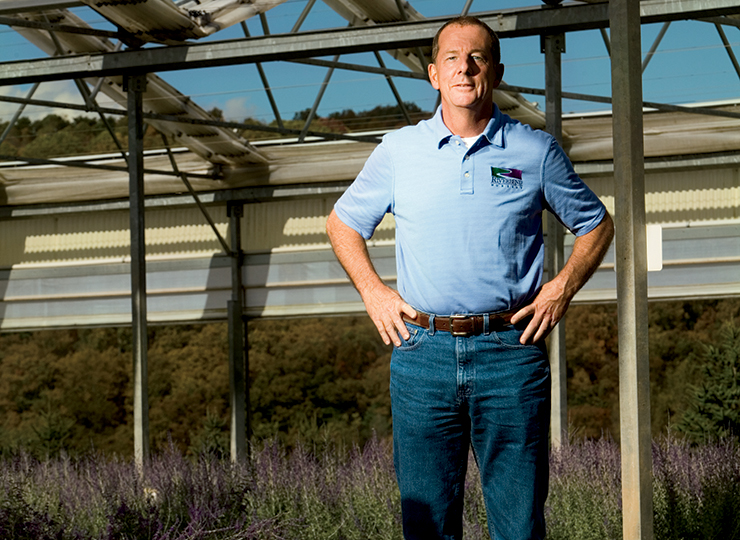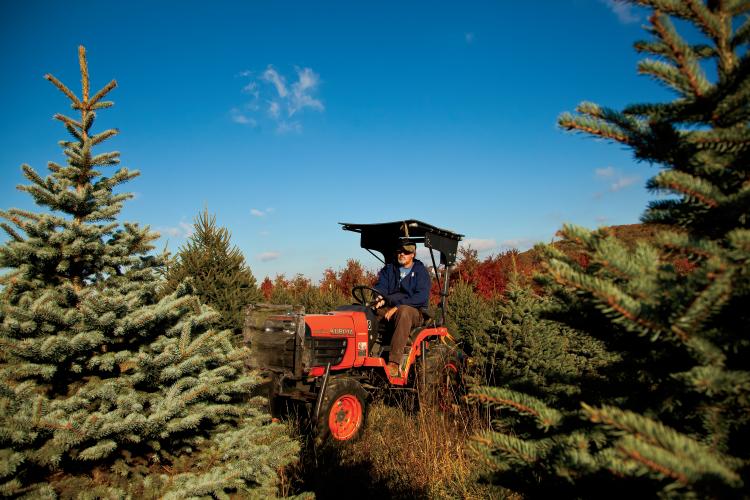Home > Virginia > Virginia Environment > Virginia Horticulture Protects Environment, Improves Water Quality
Virginia Horticulture Protects Environment, Improves Water Quality
In partnership with: Virginia Department of Agriculture and Consumer Services

Growing and selling trees, shrubs, annuals, perennials, herbs and grasses is big business in Virginia. In fact, there are more than 290 growers and 11,000 acres of nursery production in the state. That’s a lot of green, from the plants themselves to cash generated by the horticulture industry.
According to recent statistics, the economic impact of the industry to the state of Virginia is $1.2 billion. As an agricultural commodity, horticulture ranks first in farm-gate value above soybeans. Not bad for an industry that was hardly on the map in terms of farm-gate value a decade ago.
Jeff Miller, executive director of the Virginia Nursery and Landscape Association, says there are several reasons for the industry’s growth.
“Nearly 55 percent of our membership is landscape-oriented,” he says. “So the housing boom a decade ago created a strong market for nursery products.” Although recent economic conditions have impacted new construction starts and money spent on residential and commercial landscape projects, the interest in plants and their benefits is still growing. That’s because horticulture represents an opportunity to not just beautify the environment, but also to protect it.
“We work with the Department of Conservation and Recreation to promote the benefits of using plants to reduce storm water runoff,” Miller says. “Runoff of nitrogen, phosphorus and sediment pollution to streams, lakes, rivers and the Chesapeake Bay can be greatly reduced with wise use of plants in the landscape.”

Landscape design can play an important role in managing the negative effects of runoff and limiting erosion, improving water quality for all Virginians. Miller says landowners can learn more about how plants can make a difference in the environment by visiting plantmoreplants.com or by talking to one of the many experienced Virginia Certified Horticulturists and Virginia Certified Designers.
Growth Through Innovation
One of those growers is Jim Snyder of Riverbend Nursery in Riner, one of the oldest and largest perennial growers in Virginia. Snyder started his business on 18 acres in 1983. Nearly 30 years later, his operation has grown to 140 acres of more than 1,100 varieties of perennials, groundcovers, herbs and ornamental grasses. That translates into more than 2.5 million containers grown each year and sold mostly to landscape contractors and independent garden centers in the Mid-Atlantic states.
Despite challenges to the industry in the past five years, Riverbend has been successful, employing just under 100 people in the peak season, growing quality products and being innovative.
“In this industry, you can’t be afraid to try new things,” says Snyder, who launched a line of green roof products five years ago that are custom grown and delivered to the job site ready to be installed as an environmentally friendly and energy efficient building alternative. He has also recently introduced a green wall product.

Snyder’s commitment to innovation isn’t new. In the mid-1990s, he saw the potential for branding to increase sales, and Riverbend jumped in in a big way – literally. The nursery developed the B.I.G. tag and subsequently has launched Jeepers Creepers, a groundcover brand, and Gilbertie’s Herbs.
“Branding has been a big emphasis for us,” says Snyder. “It’s separated us from other growers and allows us to help garden centers to increase their sales. Our staff is forward thinking. Though we’ve had to make some hard decisions in the recent economic situation, our reputation for quality has put us in a good position to make changes and continue to be successful.”
Branching Out
Willow Springs Tree Farms is a wholesale nursery, too. Like Riverbend, it has deep roots in southwest Virginia. But the plants at Willow Springs are bigger and take much longer to grow. An evergreen and shade tree grower, Willow Springs is an 800-acre operation owned by Greg Miller, who started the business with his brother in 1973.
Today, about 20 percent of Willow Springs’ products are shade trees. The other 80 percent are evergreens, which are balled and burlapped and sold for planting. Greg Miller says on average, they produce 750 to 800 trees per acre and employ 30 or more at the peak of the growing season.
The reason for Willow Springs’ emphasis on pines, firs and other evergreens, Greg Miller says, is a function of location. “We’re situated at 2,100-feet elevation, which lends itself well to conifer production,” he says. “Most of our land is rolling, which works well for conifers. We grow shade trees on the flatter land.”

While a small shade tree is mature enough to sell after three to four years, conifers need a minimum of five years to grow, with many taking 10 to 12 years. The requisite growing time creates different challenges for tree nurseries than for businesses that grow smaller plants.
“Certainly, we are experiencing some of the same economic challenges as the rest of the horticulture industry with the slowdown in housing,” Greg Miller says. “But it takes longer to adjust when you’re growing in the ground with a five- to 12-year cycle. Fortunately, the industry has a strong partner in the Department of Agriculture, which helps promote horticulture in the state and creates high standards for growers.”



